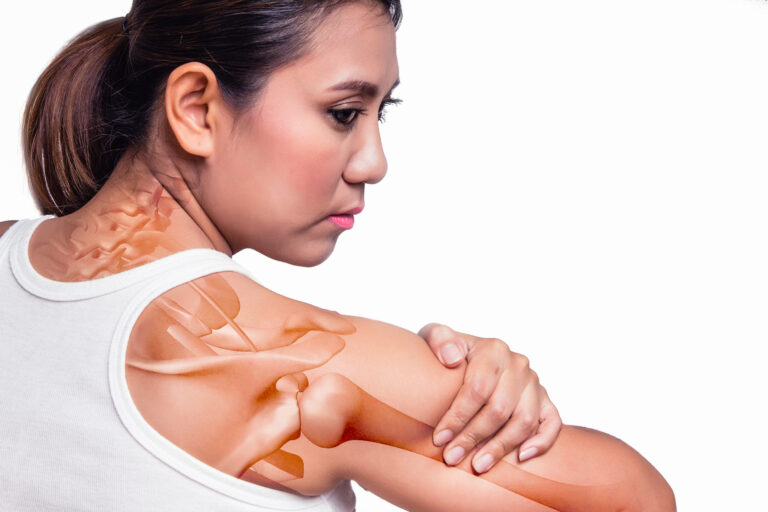Shoulder pain is a common complaint today. It is the third most common complaint regarding musculo-skeletal system pain. Studies show that long term resolution of shoulder complaints are less than 50% when treated with typical medical protocols. 60% failure after one year.
Shoulder complaints are generally categorized as: inflammatory conditions, repetitive use, structural causes of limited range of motion and muscle imbalance or weakness.
Inflammatory conditions include bursitis, impingements, rotator cuff tear, degenerative processes such as osteoarthritis or autoimmune disease such as rheumatoid arthritis. Structural limitations include adhesive capsulitis (frozen shoulder), and tight ligaments. These categories of shoulder pain are the areas that acupuncture has the greatest effect on.
In a study done by Yuxi Hospital of TCM (Traditional Chinese Medicine) to test the effectiveness of acupuncture for adhesive capsulitis, researchers revealed that acupuncture had “a total effective rate exceeding 90%”. Depending upon the acupuncture technique used, it was between 94%-96% success rate.
In a large, 17,922 patient meta-analysis (researching the research and throwing out questionable results) including most research groups from the U.S., researchers found 67% improvement with acupuncture (the conventional orthopedic group had a 37% improvement). While that is not as impressive as the first, it still demonstrates effectiveness. I have found in my experience that it is closer to the 90+% numbers. More than likely it is because we are treating an overall imbalance in the body, and including the proper nutrients needed to heal with.
Acupuncture modulates pain by assisting your body’s nervous and immune systems to heal the damage. It has shown effectiveness in treating osteoarthritis, thoracic outlet syndrome, bursitis, frozen shoulder, rotator cuff tendonitis, tendon sheath inflammation (tenosynovitis), tendonitis, fibromyalgia, rheumatoid arthritis, and sprains/strains.
Shoulder injuries that obviously need surgery (such as dislocations, fractures, severe rotator cuff tears, for example) are certainly referred out to an orthopedic surgeon, but acupuncture has demonstrated success in speeding up recovery. Most traumatic injuries that don’t require surgical intervention are effectively treated by acupuncture. When shoulder to shoulder with other therapies, each have their distinct benefits. Physical therapy, Chiropractic, even steroids initially to control runaway inflammation and pain pills have definite benefit. If you are suffering from shoulder pain and not getting results elsewhere, or don’t want to spend months or years on drugs to help, it may be time to consider acupuncture – it works!
© 2016 Holly A. Carling, O.M.D., L.Ac., Ph.D.







